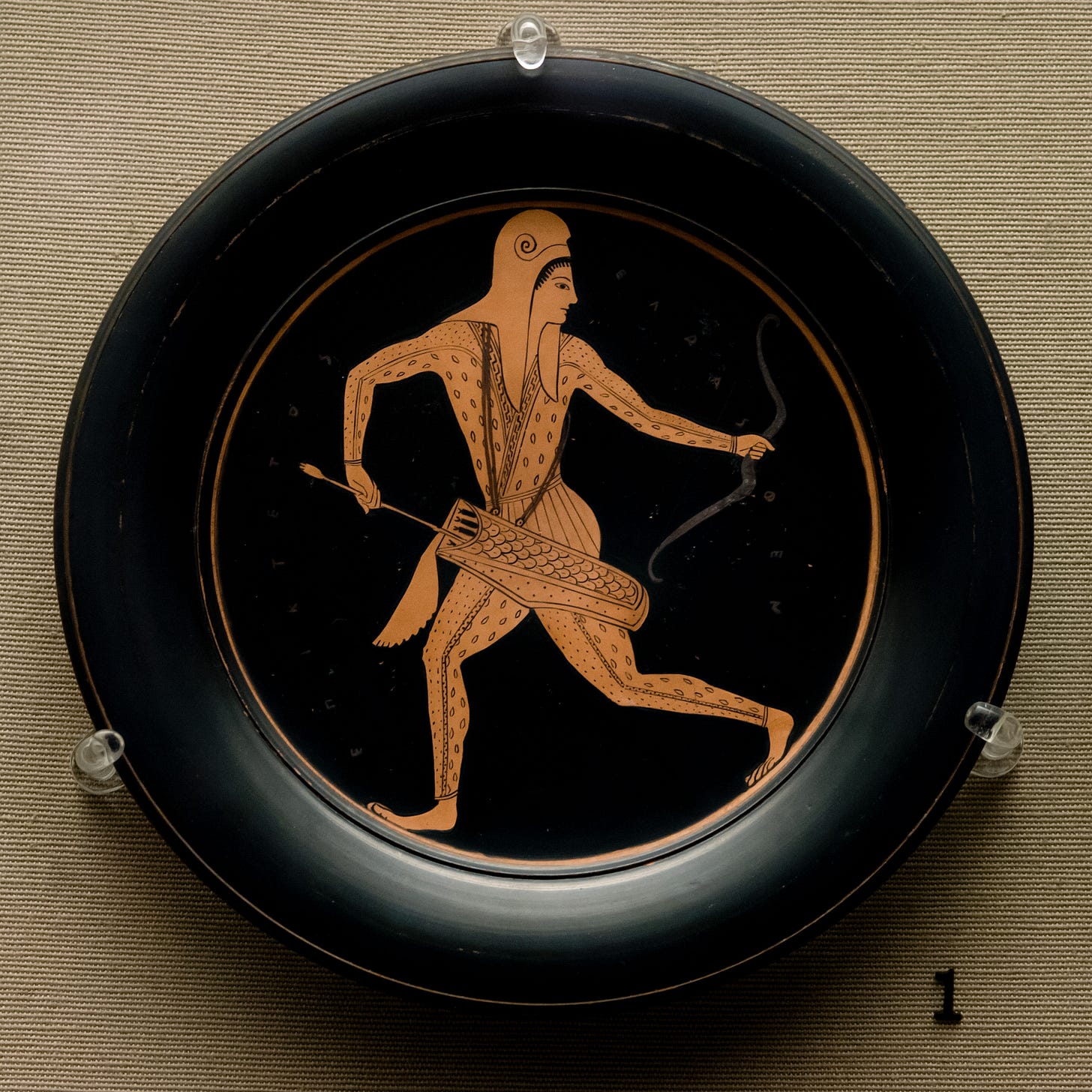Christopher I. Beckwith's The Scythian Empire: Central Eurasia and the Birth of the Classical Age from Persia to China
(Princeton: Princeton University Press, 2022) #reaction #review #ISBN9780691240534

Christopher I. Beckwith, The Scythian Empire: Central Eurasia and the Birth of the Classical Age from Persia to China (Princeton: Princeton University Press, 2022 ISBN 9780691240534)
In large measure the book is composed of a list of etymological begats in languages and scripts across Eurasia and deep into the bronze age. (I have very limited skills in these areas.)
As such it is an elaboration in support of an extension of the thesis that the Scythians are very important to Eurasian history, and occluded by the subsequent empires they informed, and who wrote more down than the Scythians ever did.
In particular it seeks to re-frame a notice that Karl Jaspers (among others) called the axial age. This reframing is in terms of describing the influence of an empire (the first of its kind) that brought a worldbuilding suite of imperial technologies:
in military techniques of mobility, weaponry and matériel;
in governance over wide geographical areas in mutual support of that military; and,
in a ‘religion’ that supported that governmental model (later Zoroastrianism).
Each mirror the other in structure: One god, one leader of the royal line, one empire.
Of course they probably didn’t separate them out into three different areas of practice/government/religion like we do, they were all the one thing.
You can see a reaction review of my first and recent introduction to Karl Jaspers’s existentialist inquiries here in the post Casewell’s Jaspers, but meika’s Deleuzian Bergsonism, in response to Deborah Casewell in her aeon.co essay (no mention of the axial age there but).
The section of The Scythian Empire of most interest to me is in regards to the conversation in reaction, or possibly in parallel, to this totalitarian worldbuilding (as exampled by Darius the Great’s support of Zoroastrianism. I.E. the antilogies it requires, the binaries that boost the oneness, the good… —the lie & the good… —the devil/s & the king… —the enemies of the world being built in his [sic] honour.
Beckwith makes the case, that it was conversations within the Scythian Empire and in particular it’s creole and client states at the empire/s’ periphery, which produced what is recorded soon after in the historical record as the classical periods of these peripheries (Greece, China…), and which in recent decades, raises the notice of Jaspers’ axial age. He probably puts it more strongly than me.
The age of philosophy (in the modern sense) in Classical Greece, or India, or China was a direct result of Scythian and local societies’ thought in conversation with the totalitarian impulse of its imperial rulers.
That periphery is what we call the centres of civilisation, but these city-folk are as much sinks as sources. particularly when conquered.
Pyrrho is not really mentioned in this book, otherwise it would be the same as Beckwith’s The Greek Buddha?
As a thought bubble here… for the neo-pyrrhonists… —the acceptance by Pyrrho of Elias of age-old practices (he was a priest of his town) and not to quibble over beliefs per se, can itself be seen as a refusal of the new-fangled one-total-empire thang. Zoroaster railed against polytheists as liars. If, as it is now, those age old practices are derivatives of that once new-fangled imperial over-reach of one-ness, one may well ask, today, what would Pyrrho do with these “age-old” practices? The context has changed.
In particular, as I put it, the following four horseman of ‘philosophy’… —Beckwith says, are all Scythian or ‘scythian-ish’ and espouse very similar themes, or against them themes:
Anacharsis the Scythian (half Greek)
Zoroaster, Scythian speaker who taught in the creole Scytho-Median Empire, but is the outlier here, for being a proponent of the totalitarian oneness technologies. (He has an appendix.)
Gautama the Scythian Sage whose ability to market these themes becomes Buddhism
Lao Tzu (Lao-tan == *Gautama) who brought number 3’s conversations to China and was named after the name he kept saying, folk etymologised that into the ‘Old Guy’ or “Lao Tzu”
This last point is first explored in Greek Buddha but given more detail here.
While I find it all a bit of a stretch, if only because of my lack of skills in ancient dead languages and scripts and phonetic changes and serial adoption of adaptations by translators deep in the past… I feel the general re-framing of world history is very, very useful.
I do tell my Latin-learning daughter it might be a more interesting career to learn Gandaran.
Beckwith presents, I feel I should warn, interpretations as data. The interpretations are an interesting lead.
Here the arguments are similar to any taphonomy dealing with fossils, which… — is much like dealing with the conversations that haunt the words we use, but the evidence of those conversations are the echos lost in a wooden chapel, which has rotted away, and we are aware of these prayers only because the chapel has left gaps in the ruins of a stone church that was built against it. For that metaphor see Divining the… —gap.
Crossposted in a newer version in April 2025 at whyweshould.loofs-samorzewski.com.


https://timothyburke.substack.com/p/the-read-christopher-i-beckwith-the
Pyrrho did not seem much concerned with the content of the existing religion. He seemed to be concerned with how the institution and practices affected the society - the pragmatics of the situation.